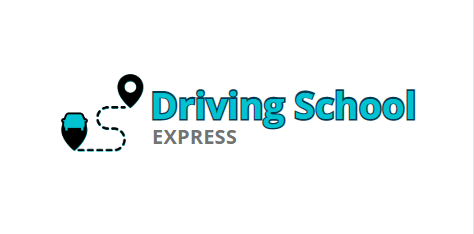Driver’s licenses aren’t created equal.
Just because you have one doesn’t mean you can drive any vehicle.
And, in North Carolina, the classifications are a bit more confusing than in other states. This is because there are 2 sets of classes with the same name. For example, there is a Regular Class A and a Commercial Class A.
So, if you are from North Carolina and in the process of applying for a driver’s license, you must first know what license class you need.
Below is a complete guide on North Carolina driver’s license classifications. Plus, we’ll also include the requirement for each type.
So let’s get started!
Driver’s License Classes in North Carolina
The six driver’s license classifications in North Carolina are as follows:
- Regular Class A
A Class A non-commercial license holder may operate any Class A vehicle for personal use or regular operation, or any single or combination Class A motor vehicle with a combined gross vehicle weight rating (GVWR) of less than 26,001 pounds, provided the GVWR of the towed vehicle is at least 10,001 pounds.
- Regular Class B
A Class B non-commercial license holder may operate any Class B vehicle for regular operation, such as work or recreational use.
- Regular Class C
A Class C non-commercial license holder may drive any Class C vehicle for personal use or regular operation. Or a Class A or B fire-fighting, rescue, or EMS, provided it is operated by a fire department volunteer, resume team, or EMS. Or a combination of non-commercial vehicles with a GVWR of more than 10,000 but less than 26,001 pounds.
- CDL Class A
A Class A CDL allows the holder to operate any Class A motor vehicle for commercial purposes.
- CDL Class B
A Class B CDL allows the holder to operate any Class B motor vehicle for commercial purposes.
- CDL Class C
A Class C CDL allows the holder to operate any Class C motor vehicle for commercial purposes.
The following are examples of each type of vehicle:
| Class A | Class B | Class C |
| 18-wheeler truck Tractor-trailer Tanker vehicles |
City, tourist, and school buses Straight, box, and dump trucks |
Personal cars Small trucks Fire-fighting, rescue, or EMS vehicles |
How to Get a Regular Driver’s License in North Carolina?
Here is how to get a regular driver’s license in North Carolina.
Level 1: Limited Learner’s Permit
If you are applying for a driver’s license in North Carolina for the first time, and you are under 18 years old, you must first secure a limited learner’s permit.
Teens aged 15 to 17 years old should apply for a learner’s permit as part of the state’s graduated licensing program.
To qualify, you must satisfy the following requirements:
- Have a Driver’s Education Completion Certificate and a Driving Eligibility Certificate.
- Have a valid social security number.
- Provide the required documents, which include proof of identity and birth, proof of NC address, and proof of lawful status in the US.
- Pass the knowledge, road sign recognition, vision, and driving tests.
- Pay the relevant permit fees.
A limited learner’s permit allows you to drive, subject to the following restrictions:
- You must always have the permit with you when you drive.
- A licensed adult seated on the front seat must accompany you while operating a vehicle.
- You cannot use a mobile device while driving.
- During the first six months, you can only drive between 5 AM and 9 PM.
- All passengers must use seat belts or child safety restraints.
Level 2: Limited Provisional License
Once you have held your permit for at least six months, have not been convicted of any vehicle violation during the last six months, and have completed 60 hours of logged supervised driving practice, you will then qualify for a limited provisional license.
With a limited provisional license, you may drive unsupervised under the following circumstances:
- When going to and from school/work
- When driving to and from a place of activity of the volunteer fire department, rescue squad, or EMS, provided the driver is a member
- When driving for any purpose between 5 AM and 9 PM
Level 3: Full Provisional License
Once you have held a limited provisional license for at least six months, and have not been convicted of any motor vehicle violation during the last six months, you may obtain a full provisional license even if you are under 18 years old. .
North Carolina Driver’s License Classifications FAQs
Got some questions?
Check out if the answer you’re looking for is listed here on our FAQs section.
Can I take an online driver’s ed in North Carolina?
If you are an NC teen who is applying for a driver’s license for the first time, you will need to take a driver’s education program through your local high school. It consists of a 30-hour classroom instruction and six hours of behind-the-wheel training.
If you are an adult who is aged 18 or over, though, you may opt for the online course.
What is the best online driver’s ed school in North Carolina?

With over 25 years of experience in training new and seasoned drivers, DriversEd is the authority in online driving school.
Its coursework has the most up-to-date content on traffic rules and driving techniques. Plus it uses advanced technology, such as 3D animations to properly demonstrate real-life scenarios.
It also features free practice tests and may also help you qualify for an insurance discount.
How do I apply for a commercial driver’s license in North Carolina?
Before you can apply for a CDL in North Carolina, you must first secure a commercial learner’s permit. To be eligible, you must satisfy the following requirements:
- You must at least be 18 years of age. You need to be 21 years old to drive out of state and for hazardous materials.
- You must be a Regular Class A, B, or C license holder.
- You must submit the required documents: proof of identity, social security card, proof of residency or legal presence, and a document proving liability insurance coverage.
While in possession of a CLP, you must be accompanied in the front seat by an operator with a valid commercial driver’s license.
To secure a CDL, you must pass the skills test.
What endorsements are available in North Carolina?
| H | This endorsement permits the operator to drive vehicles, regardless of size or class, except tanks when carrying hazardous materials that require vehicles to be placarded. |
| M | This endorsement permits the operator to drive motorcycles. |
| N | This endorsement permits the operator to drive tanks not carrying hazardous materials. |
| P | This endorsement permits the operator to drive vehicles transporting passengers. |
| T | This endorsement permits the operator to drive double trailers. |
| X | This endorsement permits the operator to drive tanks carrying hazardous materials. |
Conclusion
A driver’s license is indeed a privilege. However, even with driver’s licenses, there are classes that have more restrictions than others. Moreover, with greater privileges come bigger responsibilities and stricter requirements.
Now that you know which license class you will need, start preparing for that specific one.
Good luck!
